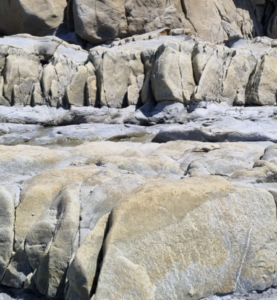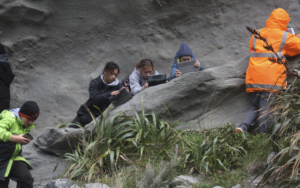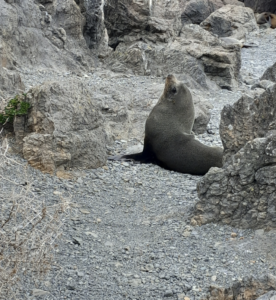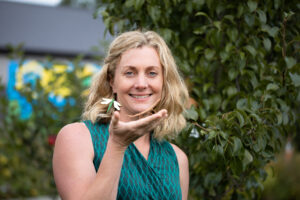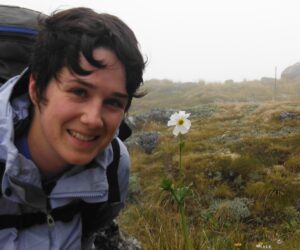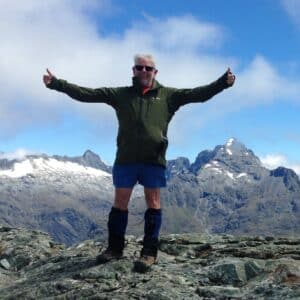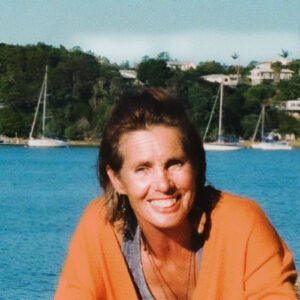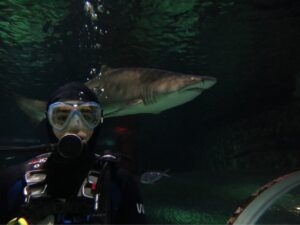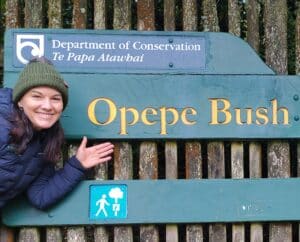Waipahihi staff are particularly keen to extend their STEM programme to include field based investigations of Lake Taupo Caldera and other volcanoes in the Taupo Volcanic Zone. In particular, Waipahihi want to integrate this support into their existing extensive programme of camps in the Tongariro National Park and Whakaipo Bay.
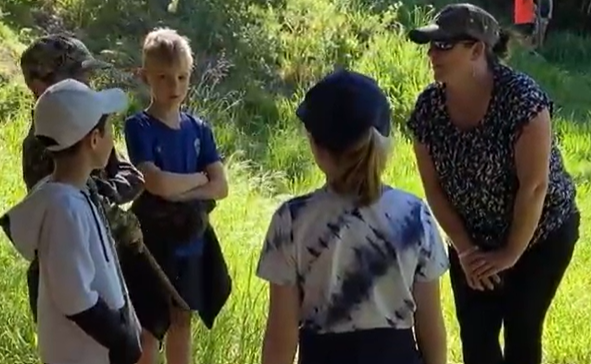
“We are really excited to have been awarded 200 PLD hours with Field Based STEM, starting next term. The process was beneficial for us in a number of ways. Firstly, looking at our priorities moving forward to enhance our connected curriculum in our local area that would go beyond working with our local environmental collaboration of organisations. Waipahihi has worked well with conservation departments over the last 5 years. For us, we identified the need to upskill our teachers around geology of what we call ‘bush school’, Mt Ruapehu (Whakapapa) and Taupō Moana. The timing for this opportunity seemed perfect for us in our next steps.
Initial discussions with Tony and Kids Greening Taupō, gave us a chance to clarify our direction and talk about a best fit PLD model for our place. We were given the opportunity to talk, question and ponder different aspects that could be put in place. Conversations were in person and over the phone. Tony then supported the process of shaping up what we had discussed and the written application forms. Having an expert onsite, coaching teachers on camp, bush school and up the mountain, as well as workshops etc feels like we have struck gold”
Jenny Maloney and Amanda Wilson, Deputy Principals
For more information on how your school can access these funds, click:
APPROVED-200 hours
Waipahihi Application
How has consultation informed your thinking?
Our existing curriculum has provided insight into the many possibilities of a shared vision that is under pinned by a collective desire for a meaningful and rich curriculum that celebrates our special place. Geologically speaking, the Central Plateau is unique and provides excellent opportunities to learn and integrate the underpinning science, mātauranga Māori, tauiwi settlement and the resulting land use and economics of the region. Waipahihi community has been consulted at length on developing our localised curriculum. Initially with collating the key concepts that will drive learning across a term on an 8 term cycle. Two key concepts that have strong connections to this project are:
- Natural Environment and
- Our People Hauora
Outcomes for Kaiako and Leaders
Outline the growth that you are trying to achieve
Our school logo has three shapes that represent our people, our land and our place – providing a powerful metaphor for our intent to create a Local Curriculum that better serves the needs of all of our ākonga. In particular, we wish to promote the concept of kaitiakitanga through practical restoration work within our own local environments including Lake Taupo lakefront, Mt Ruapehu (specifically Whakapapa), Bush School (specifically Waipahihi Reserve). We want to develop a deep understanding of the geology that has shaped our region. We wish to build upon the successes /locations that already feature within our curriculum but have yet to be fully explored in an integrated way. The sites that present themselves have a rich history and we want to embrace that history by improving our collective knowledge of mātauranga Māori, tauiwi settlement and modern-day scientific accounts about the origins of the region. We are particularly keen to explore how this knowledge helps us better understand the whakapapa and biodiversity of our region and the challenges that we must embrace. We want to bring to life the Local curriculum through a culturally responsive lens and develop project/problem-based learning to develop rich and meaningful learning programmes. We want to promote a culture that embraces the concept of tuakana/taina and build a framework for student enquiry that involves problem solving (eg authentic use of maths in natural settings), student voice, leadership opportunities and the use of digital technologies to create and connect.
Outline how you plan to measure the impact of this PLD
Our proposed measurements include: Links to local sites of special interest – eg numbers of students engaging in restoration projects and knowledge gathering activities about those sites. Local curriculum development eg develop a framework across the school for how our localised curriculum content will look across the year levels. Partnerships with whanau and community eg with Kids Greening Taupo, Predator Free NZ, DoC etc. Identifying and integrating local, authentic learning opportunities
Outline how this PLD will contribute to ākonga growth
Ākonga will have a better knowledge of Pūrākau pertaining to our region and be able to link their pepeha to physical locations (ideally visited) and will therefore have greater empathy with the whenua, awa and roto. By having an appreciation of the whakapapa of the region – its mountains, its rocks its ngahere etc they will gain a greater understanding of their own identity and place in the world. By use of a consistent language across the school, ākonga will experience smoother transitions, and increase connections between learning areas, rather than silowed learning. Students will feel empowered to solve problems and move from being reliant on instructional practice to developing independent, confident problem solvers.
We anticipate an increase of sharing of knowledge, ideas and equipment – resulting in the furtherment of our catchphrase ‘ ‘Immersed in Learning’. We are confident that such a curriculum will create equity for our learners for when they leave our school and go into the wider world, eg in our region they will be better equipped to respond to a growing eco/cultural tourism industry.

